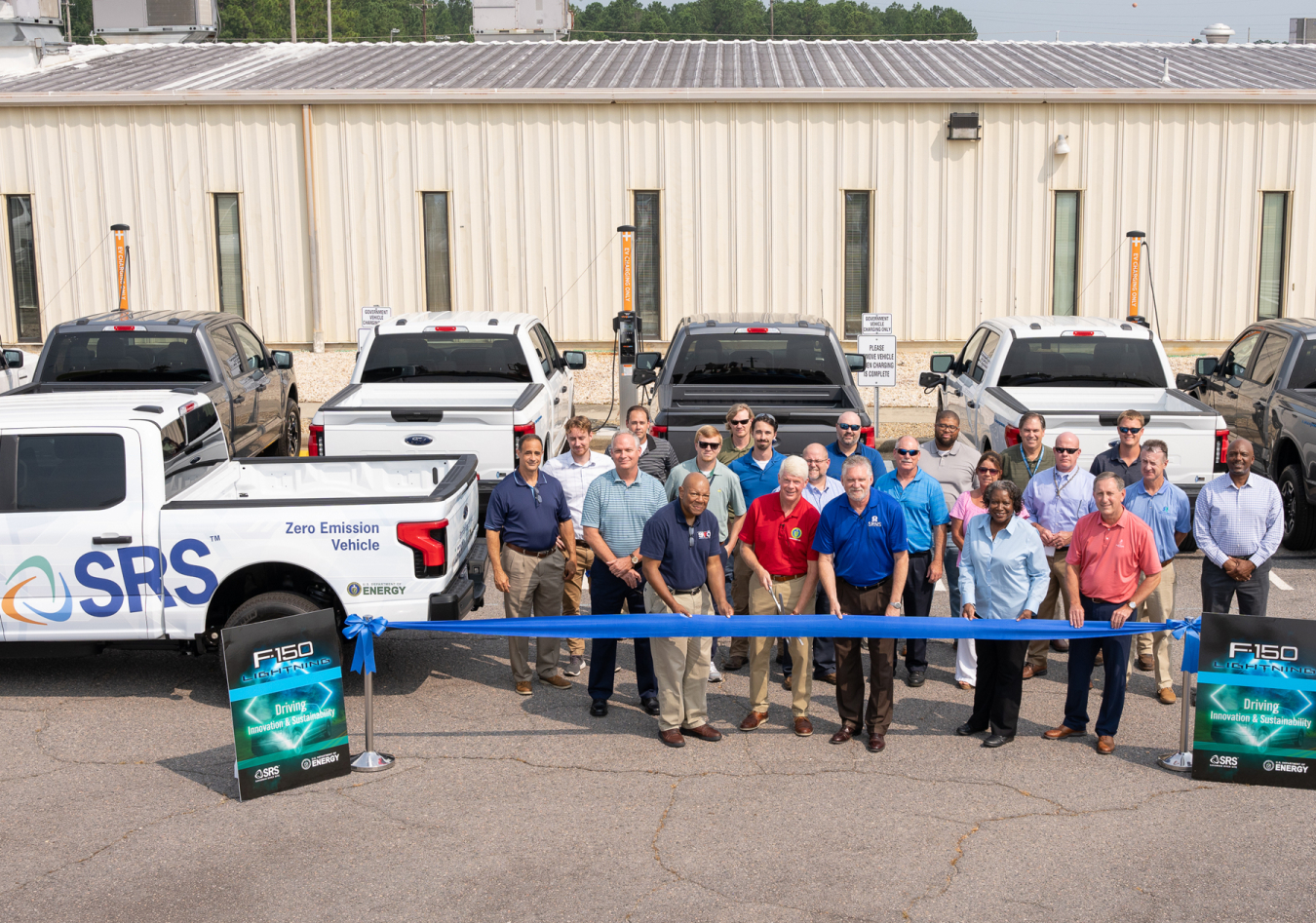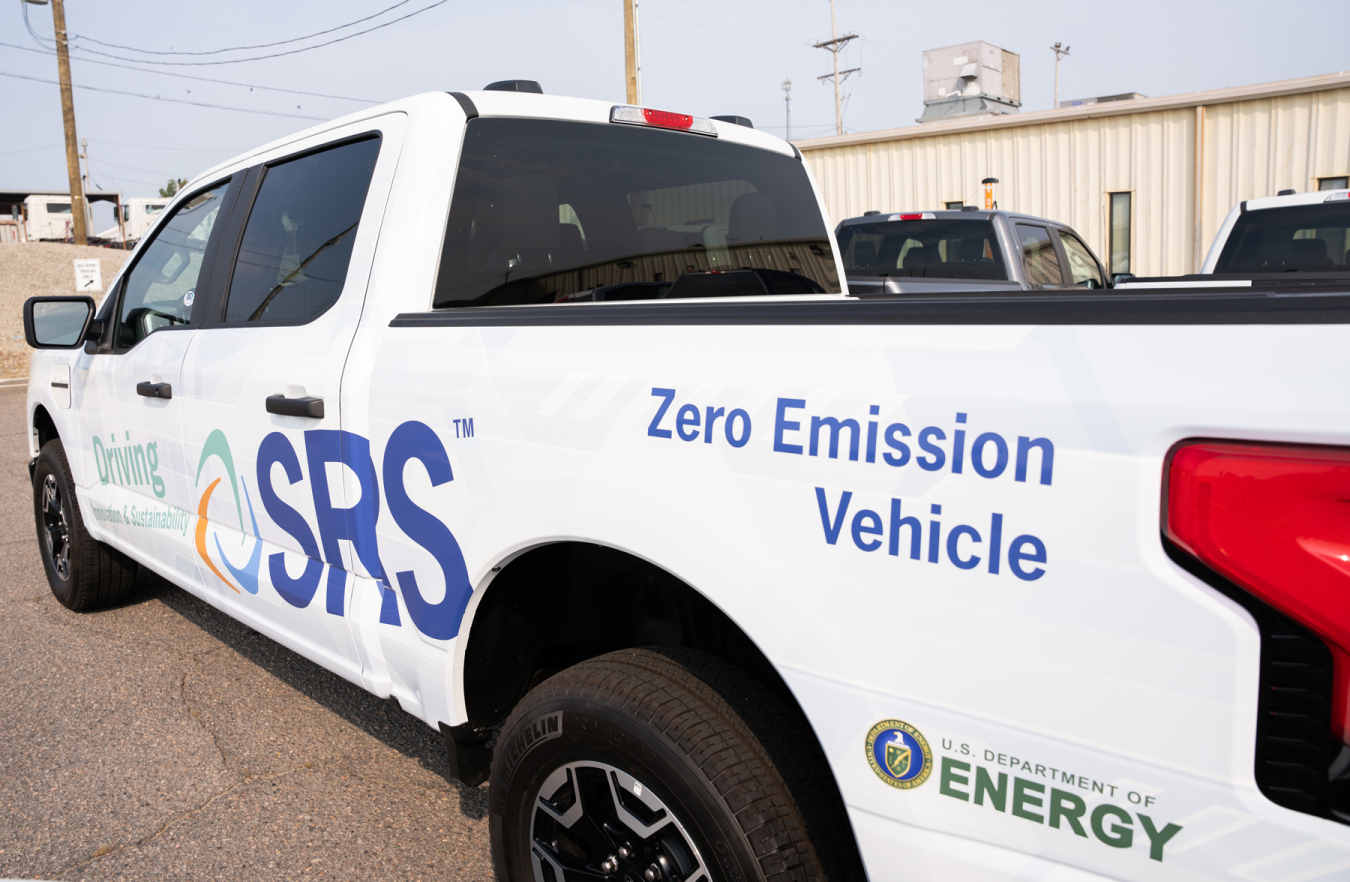The Savannah River Site (SRS) is rapidly moving from burning fossil fuels to using electricity to power a fleet of nearly 1,000 vehicles, fulfilling a Biden administration executive order.
Office of Environmental Management
July 25, 2023
Officials cut a ribbon in a ceremony celebrating the addition of over 100 zero-emissions vehicles to the Savannah River Site vehicle fleet. Pictured front row, from left, are Jeff Allison, deputy field office manager, National Nuclear Security Administration Savannah River Field Office; Mike Budney, manager, DOE-Savannah River; Stuart MacVean, president and CEO, Savannah River Nuclear Solutions (SRNS); Angelia Holmes, deputy assistant manager, DOE-Savannah River Infrastructure and Environmental Stewardship; and Mike Swain, senior vice president, Technical Services, SRNS.
AIKEN, S.C. – The Savannah River Site (SRS) is rapidly moving from burning fossil fuels to using electricity to power a fleet of nearly 1,000 vehicles, fulfilling a Biden administration executive order.
Employees with EM contractor Savannah River Nuclear Solutions (SRNS) are carrying out directives in the initial phase of the executive order on catalyzing clean energy industries and jobs through federal sustainability. They are converting gasoline cars, vans and light-duty trucks to electric alternatives at SRS.
“SRS personnel have successfully converted over 10% of our light-duty, gasoline-powered vehicles to those powered by electricity,” said Joe Solesby, SRNS logistic manager, Site Services. “We now have 76 zero-emission vehicles onsite, with more to come by the end of our fiscal year in September.”
Crews are placing multiple charging stations at locations across the site.
“Our goal is to have the electric vehicle infrastructure in place to support our zero-emissions vehicles as they are being delivered, working towards fully meeting all the directives within the executive order,” Solesby said.

The Savannah River Site is moving quickly toward using electricity to power its fleet of nearly 1,000 vehicles.
In one area of SRS, crews have installed eight fast-charging stations near administrative buildings that will provide a zero-to-80% charge within 60 minutes, enabling a range of approximately 200 miles. They recently installed a bank of slower charging stations several miles away in another site location. A third block of stations is under construction in another area at SRS.
During additional phases of the project, SRS will convert mid- and heavy-duty vehicles to zero-emission engines, as well.
The executive order also states that gasoline-powered, light-duty vehicles may not be purchased for use at federal facilities after 2027, if an electric version is available.
“The work accomplished at the Savannah River Site on this project has been impressive,” said Mike Budney, DOE-Savannah River manager. “It’s truly taken a team effort from multiple individuals and organizations to realize the progress we’ve seen to date. Preserving, protecting and improving the environment continues to be a top priority for us.”
To receive the latest news and updates about the Office of Environmental Management, submit your e-mail address.

